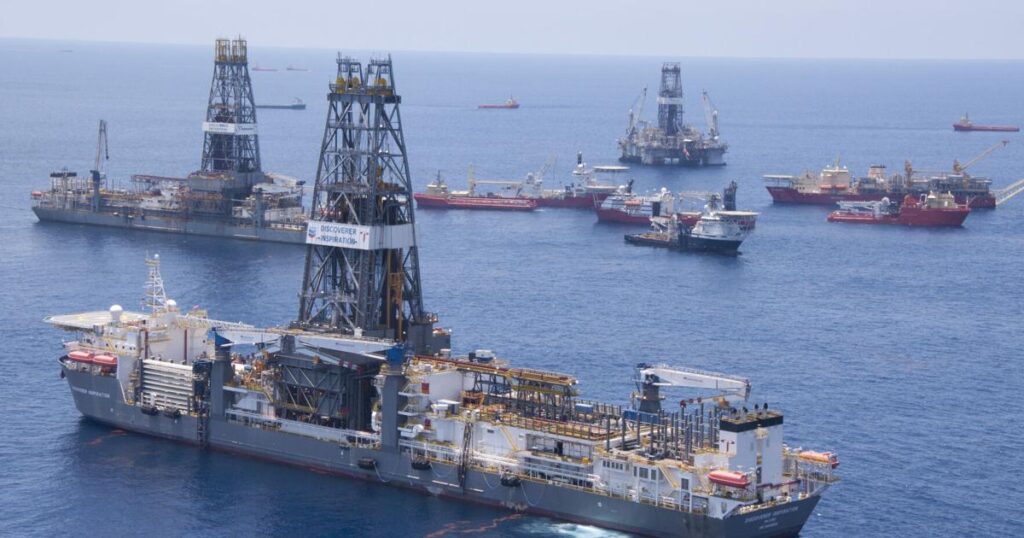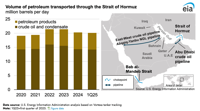(The Center Square) – As the Middle East conflict continues and energy stability remains uncertain in the Persian Gulf, energy security remains steady in the U.S., fueled by the Gulf of America states of Texas and Louisiana.
The Texas oil and natural gas industry continues to break production records and Texas and Louisiana lead the U.S. in liquified natural gas exports, providing a steady supply of energy resources at home and abroad.
As the conflict escalated, oil futures trading on Wall Street fluctuated.
On Sunday, the U.S. benchmark, West Texas Intermediate, saw oil futures increase to $78.50 a barrel (b) after the U.S. struck Iranian nuclear facilities. After Iran launched missiles at a U.S. military base in Qatar on Monday, it dropped to $68.51/b, the largest one-day drop since April.
Brent Crude Futures, a global benchmark, increased from $69/b to $74/b in one day earlier this month. As of Tuesday morning, the WTI was trading 4.7% down at $65.41/b; Brent crude was trading 4.4% down at $68.24/b.
“If a resolution is not achieved in the conflict between Isarel and Iran, retaliatory actions could include closing the Strait of Hormuz, which handles approximately 26 percent of global oil trade,” Texas Independent Producers and Royalty Owners Association president Ed Longanecker warned. Despite market uncertainty and Middle East conflict, “the Texas oil and natural gas industry continues to maintain its focus on providing reliable energy to meet demand here and abroad,” Longanecker said.
“Very few alternative options exist to move oil out of the strait if it is closed,” the U.S. Energy Information Agency says.

The strait connects the Persian Gulf with the Gulf of Oman and the Arabian Sea. It’s bordered by Iran on one side and Iraq, Kuwait, Bahrain, Qatar, the UAE and Oman on the other.
“The strait is deep enough and wide enough to handle the world’s largest crude oil tankers, and it is one of the world’s most important oil chokepoints,” the EIA says. In 2024, an average of 20 million barrels a day (b/d), or 20% of global petroleum liquids consumption, was transported through it.
“Chokepoints are narrow channels along widely used global sea routes that are critical to global energy security,” EIA says. “The inability of oil to transit a major chokepoint, even temporarily, can create substantial supply delays and raise shipping costs, potentially increasing world energy prices. Although most chokepoints can be circumvented by using other routes – often adding significantly to transit time – some chokepoints have no practical alternatives. Most volumes that transit the strait have no alternative means of exiting the region, although there are some pipeline alternatives that can avoid the Strait of Hormuz.”
Between 2022 and 2024, volumes of crude oil and condensate transiting through the strait declined, the EIA notes, partially because OPEC+ countries voluntarily cut crude oil production several times, decreasing exports from Saudi Arabia, Kuwait and the UAE.
Crude transports through the strait last year and the first quarter of 2025 comprised “more than one-quarter of total global seaborne oil trade and about one-fifth of global oil and petroleum product consumption,” the EIA says. One-fifth of global LNG trade also transited the strait last year, primarily from Qatar, it adds.
As conflict escalated in the Middle East, LNG shipping costs reached their highest level in eight months, Reuters reported.
Prior to the conflict, U.S. domestic crude oil production reached an all-time high of 13.5 million barrels per day in the second quarter of 2025, led by Texas, according to EIA data. Oil production increased this year after already hitting a record 13.2 million barrels per day in 2024.
Nearly all production growth in the U.S. has come from the Permian Basin in west Texas, as it has in the last several years, The Center Square reported.
The U.S. is the top LNG exporter in the world due to Louisiana and Texas Gulf of America port infrastructure and exports, The Center Square reported. Louisiana’s growing port infrastructure is critical to Trump administration energy plans, The Center Square reported.
“Energy security is national security and Texas barrels don’t just fill demand – they build confidence. In times of geopolitical stress, reliability becomes a strategic asset at home and abroad,” Texas Oil & Gas Association President Todd Staples said.
“The robust Texas oil and natural gas industry is essential to provide consumers with the greatest protection from price swings due to military and geopolitical conflicts. Our robust oil production, world-class refining capacity, and extensive pipeline and fuel distribution infrastructure help to insulate all Americans from the impact of global conflicts. While we are not entirely immune from impacts to production and delivery disruption, Texans and all Americans are more energy secure than ever before.”
He also said that for U.S. allies abroad, “Texas’ responsible production, transparency and dependable logistics have made America the reliable supplier the world needs. Texas has proven it can deliver in a crisis and demand for our LNG, refined fuels and petrochemicals remains high among our allies who value U.S. energy security and stability.
“The stabilizing contribution of Texas’ strong energy foundation is unmistakable in these uncertain times.”



